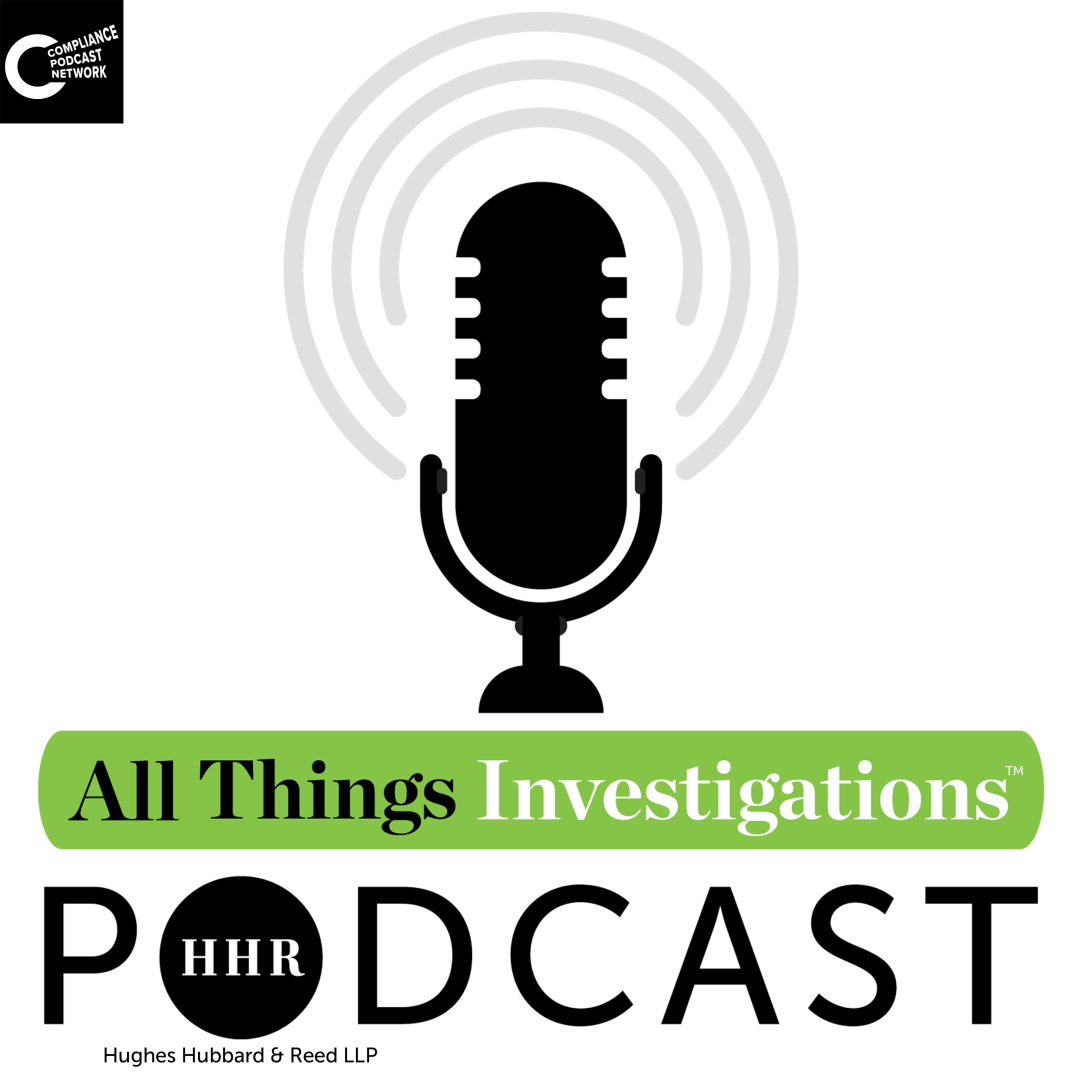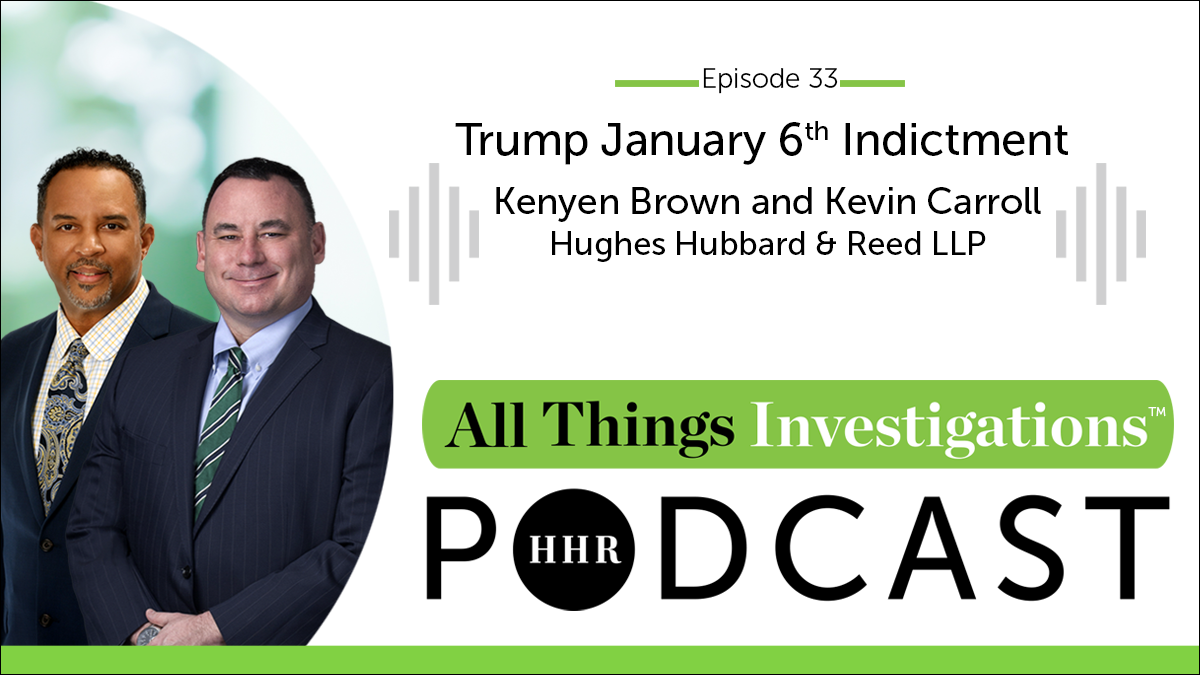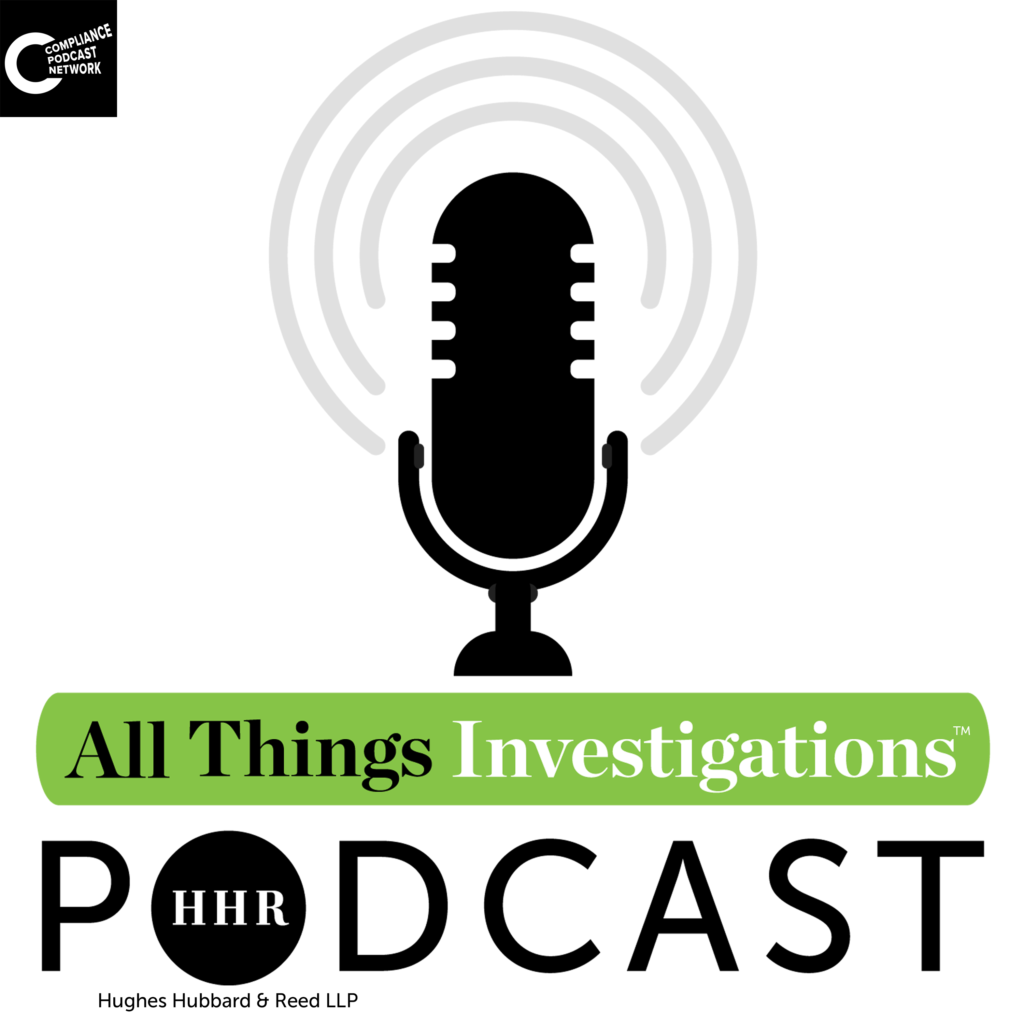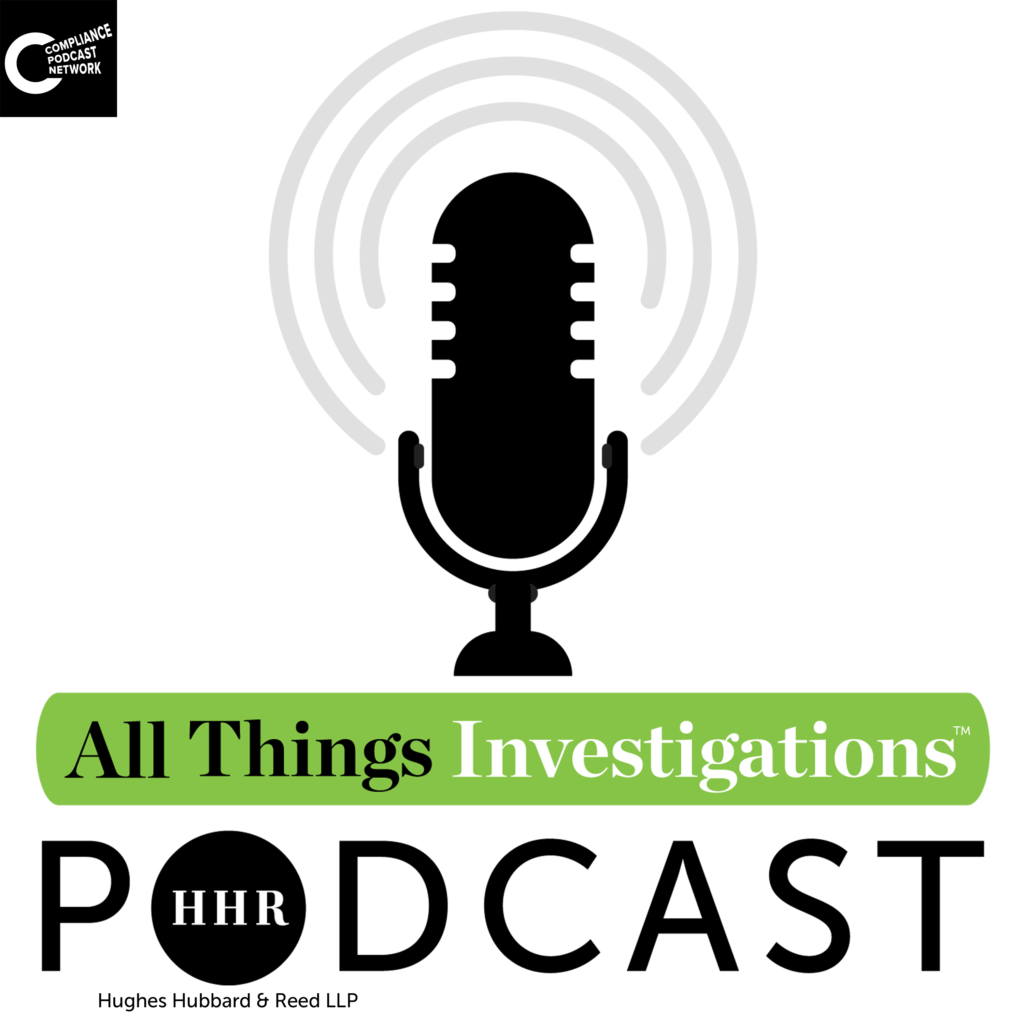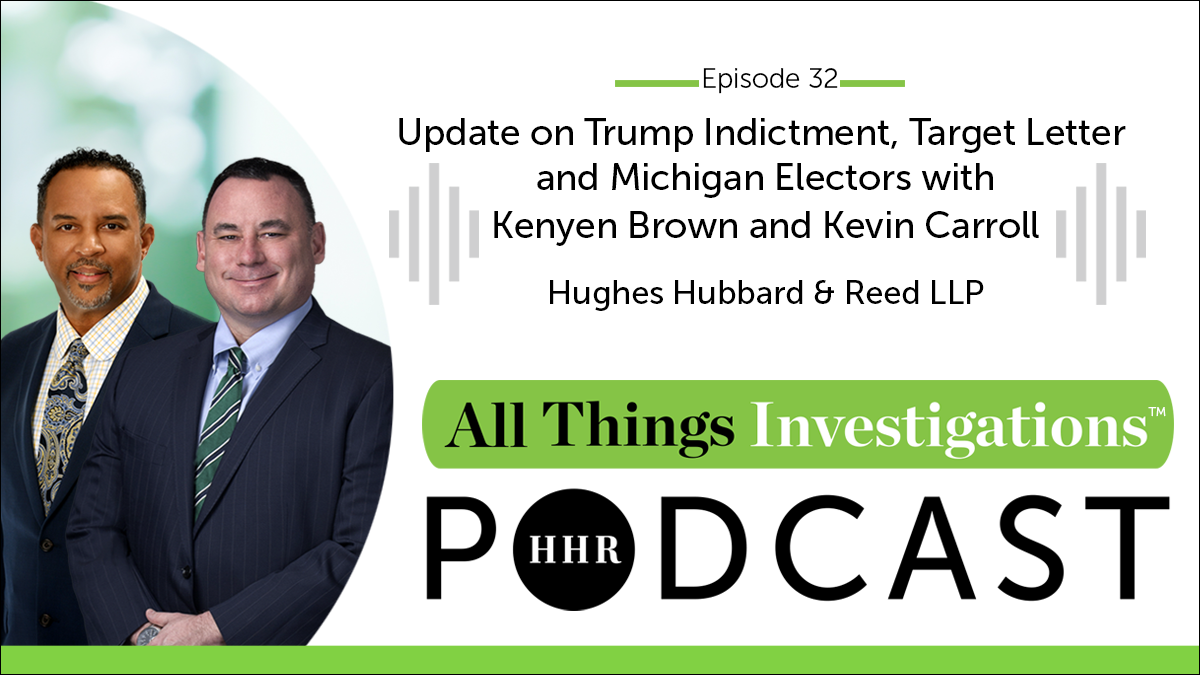
Tom Fox and guests Kenyen Brown and Kevin Carroll take a deep dive into the legal drama surrounding President Trump. On this week’s episode of All Things Investigations their seasoned attorneys walk us through three major legal events that unfolded in a momentous week. They uncover the delicate balance of political and legal intrigue, explain court strategies, and reveal the ins and outs of the judicial process.
Kevin Carroll and Kenyen Brown are partners at Hughes Hubbard & Reed. Kevin served as a senior counsel to the House Homeland Security Committee. Kenyen is a former United State Attorney.
You’ll hear Tom, Kenyen and Kevin discuss:
- The surprising lack of preparation on President Trump’s defense team’s part. They were surprised by the lack of a structured legal argument and the pleading for a trial after the election.
- Is there any merit to the defense’s claim that the amount of information to be reviewed necessitates a delay? Kenyen and Kevin agree that the defense might be asking for too long of a delay; however, they do not rule out a timeline extension due to the volume of documents involved.
- Trump’s defense does not have a large legal team to sift through the discovery material.
- They examine the defense strategy, in particular the call for the trial not to be held before the election. Such a privilege is not usually granted to typical defendants.
- Kevin voices his concerns over the defense’s public statements, questioning the judge’s hesitance in issuing gag orders. Kenyen speculates that the choice of the federal district for this case could be strategic on the part of the Justice Department, aiming for a more credible verdict.
- They discuss Trump’s announcement about receiving a target letter from Jack Smith, and its implications. They believe that it indicates that the Special Counsel believes there is already probable cause to indict Trump.
- Tom wonders if Smith’s motivation was to pre-empt any indictment that might have been made by the state of Georgia.
- Kevin speculates that the Justice Department might have been embarrassed by the January 6 Committee progressing far ahead of their investigation. He posits that it would be even more mortifying if a smaller District Attorney’s office managed to build a significant conspiracy and racketeering case against the President while the DOJ was lagging behind.
- Kenyen emphasizes that justice should be their main focus and he would hope that the pace of Smith’s actions is determined by the facts and evidence he has, rather than being influenced by a state prosecutor’s progress.
- Would the District of Columbia be an appropriate venue for a case involving the January 6 insurrection? Kevin believes so since most of the activity relating to January 6, including the preparation and the event itself, happened in DC.
- Tom asks Kenyen and Kevin for their views on this matter of the recent announcement from the Attorney General of Michigan, who charged a series of persons claiming to be electors from Michigan but who were in fact fraudulent.
- Kevin finds it interesting that Federal Prosecutor Smith is also examining the fake elector scheme. He labels the indictment as apt and defines the false claims of electoral victory as fraudulent.
- Kenyen remarks on the difficulties of prosecuting election fraud cases due to allegations of partisanship. He underlines the necessity to protect the integrity of the election system.
- Kevin discusses an incident in Michigan, where meetings were apparently recorded in which fake electors were selected.
KEY QUOTES
“I would hope that federal authorities are not motivated by what might be taking place in a parallel state jurisdiction. In other words, your master in these circumstances is supposed to be justice…” – Kenyen Brown
“Having investigated a few instances of election fraud cases in Alabama that ended up not being accurate or true, it’s almost a no win for the prosecutor because there are going to be allegations of partisanship regardless of the outcome of the merit of your case. Nonetheless, you do it to protect the integrity of the election system.” – Kenyen Brown
“The only thing worse than getting a target letter from the Justice Department is when everybody else who was involved in the crime, except you, didn’t get a target letter, they suggest that everybody’s cooperating against you.” – Kevin Carroll
“It’s super interesting because we all know that the federal Prosecutor Smith is also looking at the fake elector scheme because he specifically subpoenaed some individuals who were electors or state election officials in the different states that the results were in question legitimately or illegitimately. It’s a very apt indictment. It’s a fraud.” – Kevin Carroll
Resources
Hughes Hubbard & Reed website
Kevin Carroll on LinkedIn
Kenyen Brown on LinkedIn


